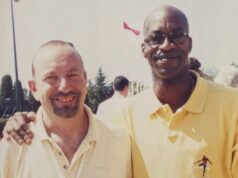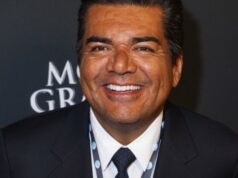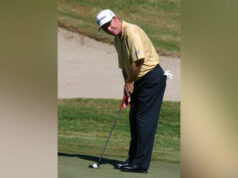TO: questions@psychedonline.org
FROM: McSam@juno.com
SUBJECT: Ernie Els and the British Open
DATE: 7/29/02, 19:33
I was watching the British Open golf tournament this past week. Obviously, one part of the story had to do with Tiger running into bad weather on Saturday. It’s not that I root against him. It’s just that it opened the door to a very competitive event. As you know, Ernie Els won in an exciting playoff. On the last day, Ernie played pretty badly on the last 3 holes. Somehow, he got the pressure under control and played much better on the extra play-off holes. I was so surprised. Do you have any idea how he did it?
Sam M.
TO: Sam M.
FROM: questions@psychedonline.org
SUBJECT: Re: Ernie Els and the British Open
DATE: 7/30/02, 6:46
Response: I am aware that Ernie Els travels with his sport psychologist. During a break between the 18th regulation hole and the beginning of the playoffs, they got together for a quick consultation. Although I don’t have access to their conversation, below is what I would have done if I was working with him.
I would have worked on getting Ernie to focus on the Here and Now. I wouldn’t want my player replaying the tape in his mind that would remind him of his poor play on the last three holes earlier that day. To do this, there are a number of exercises that can efficiently get a golfer to focus attention on the task at hand. First, I would have had him focus on taking a number of deep breaths into his belly for relaxation. As we walked, I would have asked my player to focus on the feeling of the ground under his feet. In addition, I would have instructed him to take a golf club in his hand and focus on how his hands feel as he wrapped his fingers around it. Most importantly, I would have had Ernie review his pre-shot routine since it would create familiarity with the situation. Finally, I would have also asked him to remember a great shot that he made during the round to create a positive attitude. In the recalling, I would ask Ernie to visualize his swing and the flight of the ball. Unless, he can visualize success, it would almost impossible to achieve.
I like to work with a golfer a period of time. The player’s cognitive strengths and weaknesses are revealed during the session and trust is built. Also, I’d have learned how to communicate the solutions to the individual quickly in a style that is effective. When there is a positive alliance with the sport psychologist, the golfer is more open to following instructions. This is especially important when the interventions must occur in the midst of the pressures of an athletic event.
Paul Schienberg, Ph.D.













